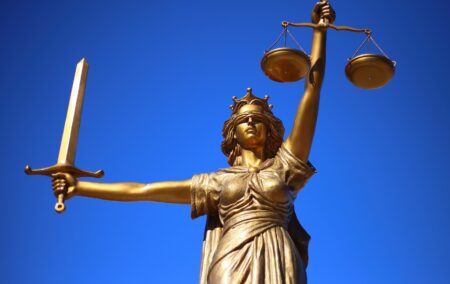South Africa is navigating its new democracy, and in so doing is trying to create an effective balance between the judiciary, legislature, and executive. In 2016, the Constitutional Court judgment in the case between the EFF and the Speaker of the National Assembly presented a watershed moment. It signalled to South Africans that our constitutional democracy nearly failed in protecting the rule of law and maintaining a separation of powers; this period signalled the apex of the judicialisation of politics.
Judicialisation of politics refers to the use of litigation to resolve political disputes, despite the existence of established safeguards that exist to tackle these issues at a political level. The State Capture era was a period that consisted of the abdication of governance responsibilities in favour of the judiciary.
Judicial non-intervention is a standard that is enshrined within constitutional democracies. The National Assembly is also protected by parliamentary privilege, aimed at protecting legislatures from executive interference. Under the current political system, the executive governs through the legislature; however, separation of powers is dependent on the executive’s accountability to Parliament. The current system blurs the lines between the executive and legislature, which has resulted in the failure to effectively maintain the separation of powers. Alongside the three branches of the state that comprise our democracy, Chapter 9 institutions emerge to support their efficacy.
Increased reliance
South Africa is a constitutional democracy; however, through the development of this democracy there has been an increased reliance on the judicial system. Especially during the Zuma years, courts had noticed the abuse of the rule of law and used their position to realign the state, despite the potential risk to separation of powers.
Currently, the challenge that emerges in this predicament is that when the court is constantly called upon to adjudicate in politics, it results in distrust in the judiciary, and it undermines the separation of powers regarding the operations of government. This results in a judiciary that is overly exposed to public criticism. The Speaker of the National Assembly, Baleka Mbete, accused judges of being biased against the ANC. Minister Lindiwe Sisulu has referred to the judiciary as ‘colonised.’
The years under President Jacob Zuma resulted in the judicial review of numerous political matters: for instance, the failure to arrest Sudanese president al-Bashir, as well as the litigation following the failure to receive approval prior to South Africa withdrawing from the Rome Statute. The judiciary expanded its powers as in the Black Sash Trust case, regarding government’s failure to create an effective social grant payment system. This resulted in a decision to hold the minister personally accountable by issuing a cost order against her. The court also gained authority in dictating the rules of the National Assembly regarding the scope that the Speaker had in ensuring accountability of members.
The judiciary has reviewed challenges to executive appointments to public office, such as Shaun Abrahams, based on questionable independence. By the end of 2017, as noted by Stephen Gardbaum, judicial review included parliamentary procedures, rules for violations of constitutional rights, and the mechanisms and processes that these obligations require.
Another tactic in the judicialisation of politics was the use of state resources to fund endless litigation. The Minister of Justice admitted that while in office, Zuma spent R24 million of taxpayer money on legal fees. Evading accountability also emerged regarding the trumped-up charges of fraud against Minister Pravin Gordhan.
The EFF case consisted of the Constitutional Court affirming the binding nature of the Public Protector’s report on the President’s upgrades to his homestead in Nkandla. The ANC-dominated National Assembly responded by issuing a report that exonerated Zuma.
Cult
The growth of the cult-like state under Zuma was evidenced by the control of the legislature by the executive. Also in this period, there was a reluctance to establish portfolio committees to respond to corruption in entities such as Eskom.
At each turn, the court played an interventionist role when all other mechanisms failed.
One can see that the courts were the barrier that prevented complete State Capture, but at what cost? Are expanding judicial powers a sign of a developing democracy or a blur of power?
Today South Africa is in phase two regarding the judicialisation of politics, where the focus is on constantly challenging the policies of state, instead of following accountability mechanisms that exist in Parliament. For instance, in the Sakeliga case against Minister Nkosazana Dlamini-Zuma, the High Court ruled that Dlamini-Zuma must account for her decision-making during the Covid-19 lockdowns, whereas accountability should have initially been sought through the legislature.
Another current issue is President Cyril Ramaphosa approaching the judiciary regarding the Section 89 report on the Phala Phala farm theft. This raises questions as to whether the investigation, report and its conclusion would have been better resolved through alternative mechanisms.
The current dilemma is one where non-justiciability needs to enable judges to appropriately determine when to involve themselves in the affairs of the other branches of state. However, the failure by other constitutional institutions, save for the Public Protector, to guard against state capture predictably resulted in a necessary scope creep and a government run by court orders.
The views of the writer are not necessarily the views of the Daily Friend or the IRR.
If you like what you have just read, support the Daily Friend.

